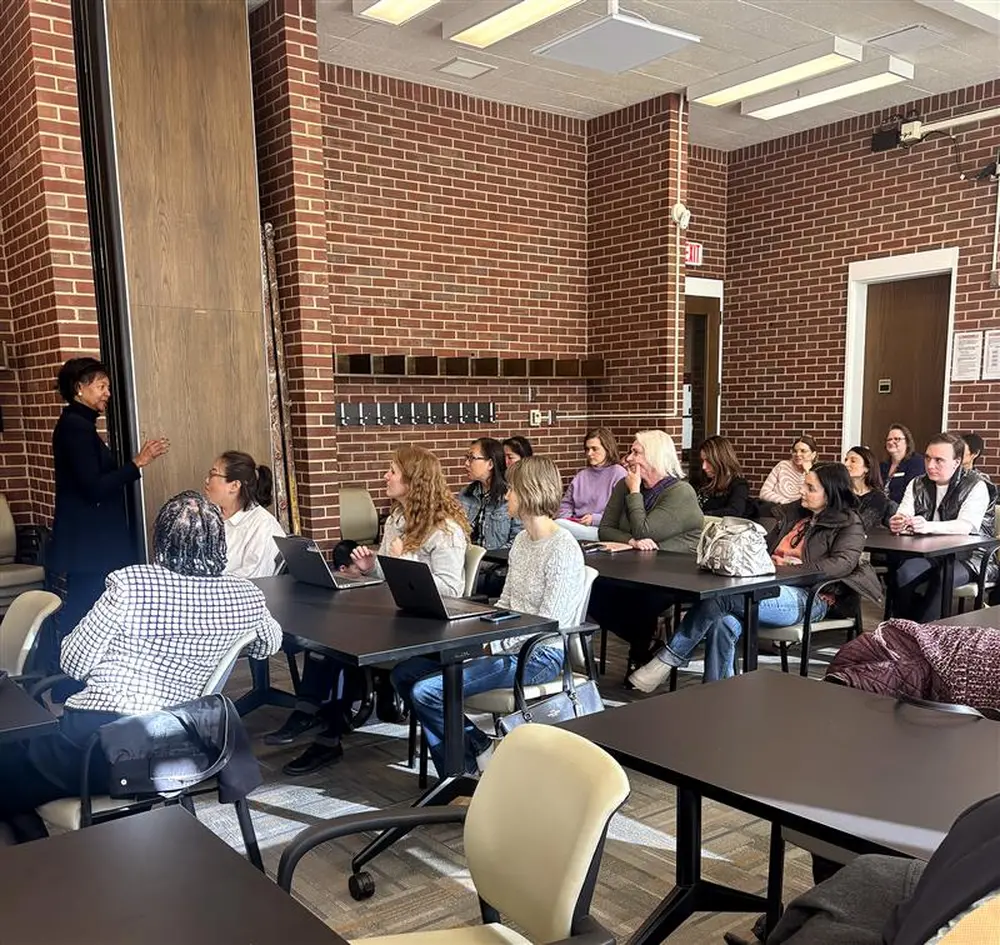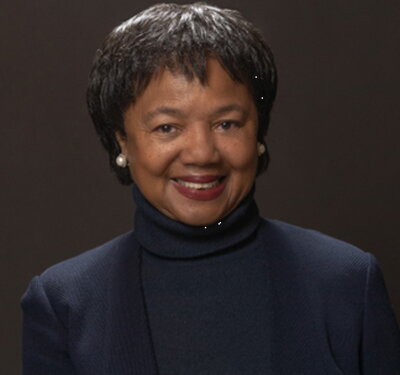
What is empathy—and why does it matter in the 21st century?
That was the question intercultural communication expert Carolyn Calloway-Thomas addressed in her spring talk, “Cultivating Intercultural Communication Competence: Learning What It Is Like to Live by Someone Else’s Light,” hosted by the School of Literatures, Cultures & Linguistics as part of the Intercultural Competence Initiative.
“Of all the sentiments that have the potential to alter what we do interculturally— and especially in higher education—none is more important than empathy, a concept that lies at the very core of our common humanity,” Calloway-Thomas stated in her keynote summary.
Calloway-Thomas, a professor and director of graduate studies in the Department of African American and African Diaspora Studies at Indiana University Bloomington, said it’s especially important when trying to navigate a world in crisis.
“Empathy is the moral glue that holds civil society together,” said Calloway-Thomas. “Unless humans have robust habits of mind, and reciprocal behaviors that lead to empathy, society as we know it will [crumble].”
For Calloway-Thomas, empathy goes beyond its use as an explanatory concept for understanding why people think, feel, and behave as they do.
“The notion of imaginative placement constitutes the essence of what I mean by empathy: an act that allows one to leave one’s own world and enter into the world of the other,” she said. “Of course, I’m not promoting the idea that we can become the other. My conception of empathy carries with it the idea that if we claim to be human beings, then we can, with the sufficient effort of imagination, grasp what the world must have—and does—look like to people across time and space.”
She said that idea of bringing the near and distant together is a big part of why empathy matters.
“It is impossible for human beings to experience everything directly,” said Calloway-Thomas. “Our minds rely on the human imagination—on narratives and stories—to help us understand what it is like to live by someone else’s light.”
Another key part of her argument: that virtuous empathy is a necessary condition for highly desirable human outcomes.
“Civilization rests on the fact that we all benefit from knowledge we do not possess,” she said. “In fact, it can be argued that we all benefit immensely when we do our best to move beyond economic class and privilege into the well of knowledge and awareness. Knowledge extends to all, and we all can make use of its endless and unceasing capital capacities.”
What this looks like in practice: fostering goodwill, giving people the benefit of the doubt, and having mutual respect for one another.
“[These things] help us to cultivate the habits of mind for generating trust and help [us] cooperate with each other, creating opportunities for congeniality,” she said, adding, “We don’t have to be in love with people in order to respect them.”
About the speaker

Carolyn Calloway-Thomas is a professor in the Department of African American and African Diaspora Studies at Indiana University Bloomington. She serves as an Intercultural Communication Competence Advisory Expert on the World Council on Intercultural and Global Competence and is past president of the World Communication Association. In 2023, she was named one of the "Top 25 Outstanding Women Listeners in the World" by the Global Listening Centre.
Her coauthored book, "Intercultural Communication between Chinese and North Americans," is forthcoming. She is also coauthoring a forthcoming book titled “Speak Out." She is coauthor of "Fifty Years of Generating Minds: The Groups Program" (2019); author of "Empathy in the Global World: An Intercultural Perspective" (2010); coauthor of "Intercultural Communication: A Text/Reader" (2007) and "Intercultural Communication: Roots and Routes" (1999); and coeditor of "Dr. Martin Luther King Jr. and the Sermonic Power of Public Discourse" (1993).
Her areas of specialization include the rhetorical/intellectual history of Black Americans, intersections between empathy and race, intercultural/interracial communication, pedagogy of empathy, and civic engagement.
This program was partially supported by the C. C. Seetoo Family Fund to promote cross-cultural communication.
The Intercultural Competence Initiative was created with support from the Presidential Initiative: Expanding the Impact of the Arts and Humanities in 2021. Its goal is to drive the systematic integration of intercultural competence across the Illinois curriculum and make it a distinguishing component of our academic culture.